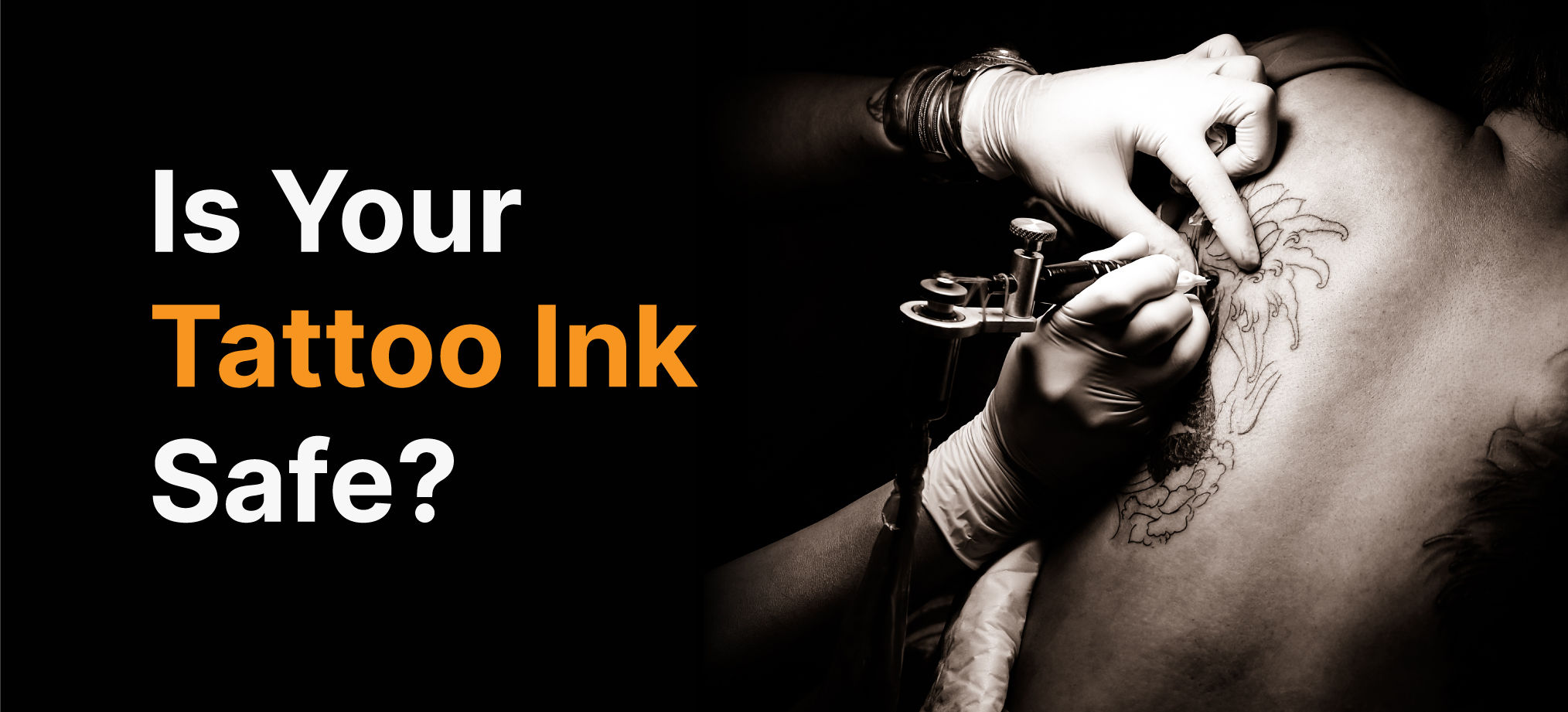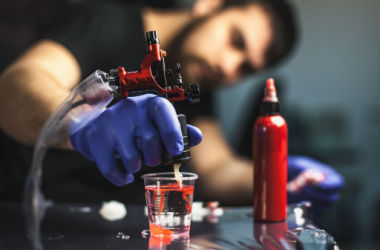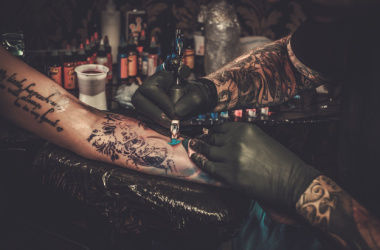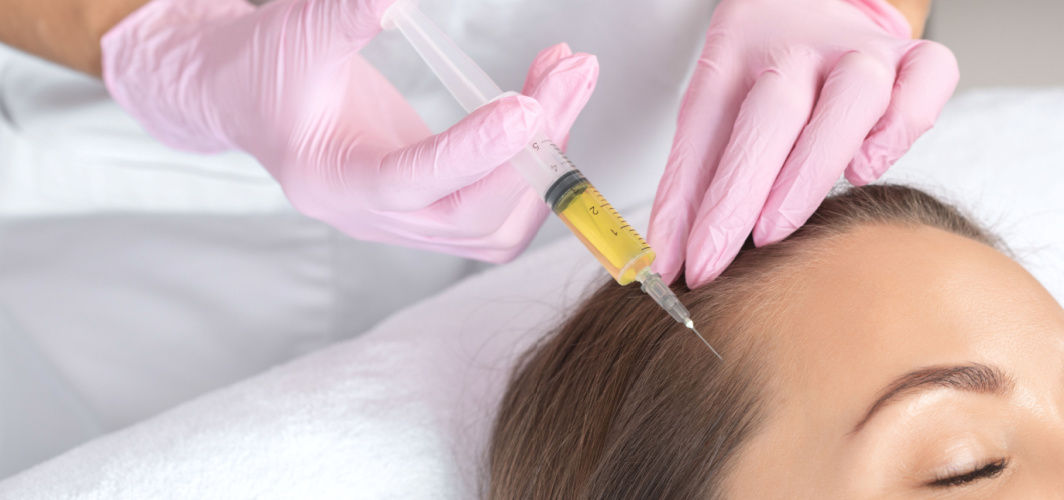Skin Care
Is your tattoo ink safe? Things You Should Know Before Getting Inked
5 min read
By Apollo 24|7, Published on - 17 August 2022, Updated on - 18 October 2022
Share this article
0
32 likes

The popularity of tattoos has been constantly growing around the globe as many people consider them a way to express themselves. But have you ever wondered what ingredients go under your skin while tattooing? Well, while making a tattoo, the machine's needle penetrates the skin and ink reaches the dermis (the thickest layer of the skin), which makes the tattoo permanent. Tattoo inks contain a variety of ingredients that vary depending on the brand and colour of the ink. You will be amazed to know that some inks contain industrial grades chemicals, such as titanium dioxide, lead, chromium, nickel, iron oxides and carbon back. Read this blog before you plan on getting a tattoo.
Types of tattoo inks
Two popular types of tattoo inks include:
1. Stable pigment ink: It is a thicker, powder pigment-based ink that is widely used for tattooing. This ink is popular as it gives the tattoo a bright and bold appearance.
2. Pre-dispersed ink: These colours are ready to use right out of the bottle and do not require thinning or mixing.
Ingredients Used In Tattoo Inks
Tattoo inks mainly contain industrial-grade organic, mineral, and plastic-based ingredients. The ingredients used in inks are commonly determined by the type of colour. Ingredients found in some of the most popularly used inks include:
- True Black: Pigment black, Acrylic resin, Glycerine, Water, Witch hazel, and Isopropyl alcohol
- High White: Titanium dioxide, Water, Acrylic resin
- Hard Orange: Acrylic Resin, Pigment red 210, Pigment orange 13, Glycerine, Water, Witch hazel, Isopropyl alcohol
- Red Cherry: Pigment Red 210, Acrylic resin, pigment blue 15, Glycerine, Water, Isopropyl alcohol, Witch hazel
- Bowery Yellow: Pigment yellow 65, Acrylic resin, Titanium oxide
- Dark Green: Pigment green, Acrylic resin, Glycerine, Water, Witch hazel, Isopropyl alcohol
- Baby Blue: Titanium dioxide, Acrylic resin, Isopropyl alcohol, Pigment blue 15, Glycerine, Witch hazel, water
- Deep Indigo: Pigment violet 1, Acrylic resin, Glycerine, Titanium oxide, Isopropyl alcohol, water, Witch hazel

Why is it important to know about your tattoo ink?
People always look for the right kind of design and colour while going for a tattoo. However, it is more important to pay heed to the hygiene, safety precautions, and the ingredients present in the tattoo ink. Acrylonitrile butadiene styrene (ABS), a plastic-based pigment that provides vibrant colour to tattoos, can result in allergies. Similarly, several metal-based pigments can also cause allergic reactions and other skin diseases. Therefore, you must ask your tattoo artist about the inks being used on your skin.
Safety Protocols While Getting A Tattoo
The tattoo studio should follow proper safety and hygiene protocols as it reduces the risk of developing an allergy or serious skin disease. Some of the measures that may help are:
- Before beginning, the tattoo artist should wash their hands and put on a clean set of protective gloves.
- Tattoo artists should sterilise every non-disposable equipment using a sterilising machine.
- Sanitise the tables, chairs and wash basins using a disinfectant after every appointment.
- Tattoo artists should discard the used needles, tubes, or pigments.

Health Risks Involved In Tattoos
Generally getting a tattoo is safe, however, sometimes it may react with the skin and result in some health issues. Some of the health risks involved with tattooing are:
1. Allergic reactions
Allergies are the most common reactions to the dyes used in tattoos. These reactions mainly occur on sensitive skin and the symptoms may include redness, itching, swelling and rashes. It is possible for symptoms to appear quickly after getting a tattoo or they could take weeks or years to develop.
2. Skin infections
Skin infections may occur if the artist uses contaminated or used needles and tools. Infections also fester when proper aftercare is not taken after getting a tattoo. To avoid any infections, it is important to take care of tattoo wounds.
3. MRI complications
Though rare, people with tattoos may experience swelling, redness, or first-degree burns due to the magnets used in MRI machines.
4. Hepatitis
Using infected needles can significantly increase the risk of contracting hepatitis after getting a tattoo. Hence, it is important to ensure that each client gets tattooed with a new needle.
5. Cancer
Though it is a rare complication, some ingredients found in tattoo inks are known to be carcinogenic in nature (cancer-causing), therefore they may increase the risk of cancer.
Taking Good Care Of The Tattoo
The healing of tattoos can sometimes take up to a week for simple designs and months for complex designs. Therefore, allow the tattoo to heal and take proper precautions during that time. Tips that may help are:
- Keep the tattooed skin clean by washing it with mild soap and lukewarm water. Avoid frequent contact with water.
- Apply the moisturising cream several times a day to keep the skin soft and smooth, and to avoid rashes.
- Avoid direct sunlight exposure on freshly tattooed skin for some time.
- Itching is common on tattooed skin, however, one should avoid scratching. If itching persists for a long interval, it is advised to consult a doctor.
Before getting a tattoo, make sure to know about the ink and the tools being used. If you experience any allergic reaction post getting a tattoo, consult a dermatologist immediately.
Consult an Apollo Dermatologist
Medically reviewed by Dr Sonia Bhatt.
Skin Care
Leave Comment
Recommended for you

Skin Care
PRP Therapy For Skin And Hair: Know The Benefits & Side Effects
Explore the effectiveness of platelet-rich plasma (PRP) therapy for skin rejuvenation and hair regrowth. Discover how PRP stimulates collagen production, improves skin texture, and promotes hair growth. Learn about PRP treatment's benefits, procedures involved and potential side effects.

Skin Care
5 Most Common Skincare Issues Experienced By Adults
Stress, dirt, and allergens often lead to skincare issues such as acne, and rough, flaky patches on the skin. It is important to know about such skin conditions that may require medical attention.
.jpg?tr=q-80)
Skin Care
10 Best Biotin Supplements in India
Looking for the best biotin supplement in India? Check out our list of the top 10 biotin tablets for hair growth. Find the perfect product to help you achieve luscious locks and promote healthy hair growth.
Subscribe
Sign up for our free Health Library Daily Newsletter
Get doctor-approved health tips, news, and more.
Recommended for you

Skin Care
PRP Therapy For Skin And Hair: Know The Benefits & Side Effects
Explore the effectiveness of platelet-rich plasma (PRP) therapy for skin rejuvenation and hair regrowth. Discover how PRP stimulates collagen production, improves skin texture, and promotes hair growth. Learn about PRP treatment's benefits, procedures involved and potential side effects.

Skin Care
5 Most Common Skincare Issues Experienced By Adults
Stress, dirt, and allergens often lead to skincare issues such as acne, and rough, flaky patches on the skin. It is important to know about such skin conditions that may require medical attention.
.jpg?tr=q-80)
Skin Care
10 Best Biotin Supplements in India
Looking for the best biotin supplement in India? Check out our list of the top 10 biotin tablets for hair growth. Find the perfect product to help you achieve luscious locks and promote healthy hair growth.